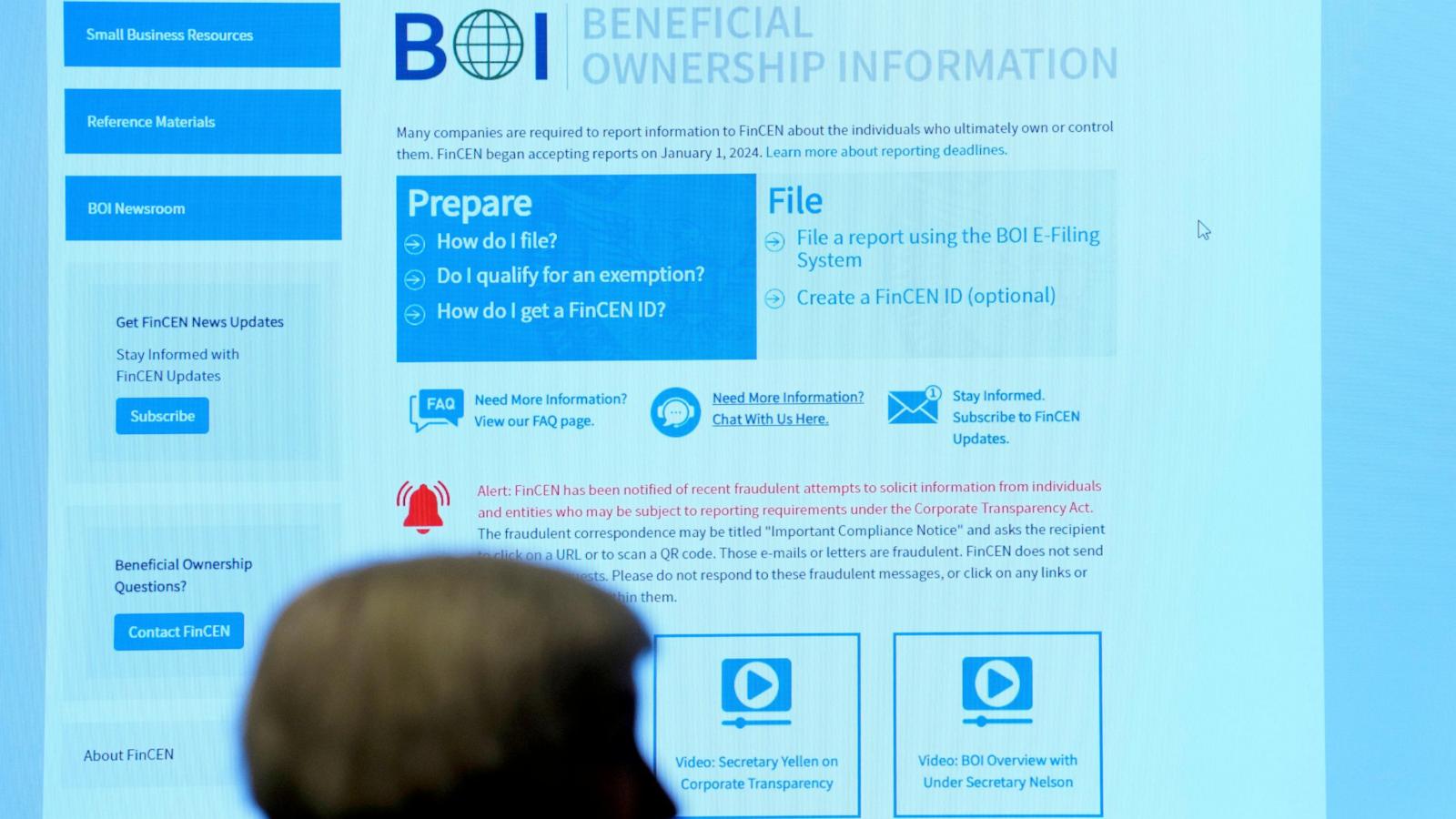Is Your Small Business Safe From the Corporate Transparency Act? The Latest Updates You Need to Know!
The Corporate Transparency Act (CTA) has been making headlines, leaving many small business owners wondering about their obligations and the potential impact. This complex law aims to curb money laundering and combat illicit activities by requiring certain businesses to disclose their beneficial owners. But what does this mean for you, and what steps should you take to ensure compliance? Let's dive in!
Understanding the Corporate Transparency Act (CTA): A Game Changer for Small Businesses?
The CTA is a significant piece of legislation designed to increase transparency and improve tracking of business transactions. It requires many small businesses to share details about their true owners — that's who is actually in charge and benefits financially from their company. This includes information such as names, addresses, and identification documents. The core objective is to cut off anonymous shell companies often used to cover financial crimes. However, the legislation’s implementation has faced legal challenges and is subject to ongoing developments.
Who Is Affected by the CTA?
The CTA doesn't apply to all businesses. Certain types of companies are exempt, including those that are publicly traded, regulated entities, or those that meet specific employee counts. This varies slightly across the individual state laws.
Why Is There Confusion Surrounding the CTA?
Despite passing in 2021, there's been significant uncertainty concerning the application of the CTA. The complexity of its application has led to ongoing legal battles, and implementation has repeatedly been delayed.
What are the Current Requirements?
The key requirement is for companies to register details about their beneficial owners with FinCEN (Financial Crimes Enforcement Network). This includes information like names, dates of birth, addresses, and forms of identification. FinCEN, however, has temporarily stopped enforcing the filing requirements due to the abovementioned court rulings. Therefore, it is technically possible to not be in compliance. Be aware though, that these ongoing legal cases are likely to reach an ultimate outcome at some point, and filings could become compulsory, bringing retrospective penalties. It’s always safer to proactively plan and adhere.
The CTA's Impact: Benefits and Drawbacks
The CTA has strong advocates who argue its positive potential in tackling criminal activities. By illuminating hidden ownership, the law attempts to deter illicit activity while helping to uncover potential criminals and suspicious business activity.
Potential Benefits of Increased Transparency
These include a decrease in illicit financial flows and an enhanced system for better identification of the responsible owners for illegal operations. These aspects positively improve due diligence processes.
Criticisms of the CTA
Business groups, on the other hand, feel that registration requirements are extensive, particularly for smaller businesses. Compliance requires dedicated administrative resources and carries considerable costs. The act potentially presents challenges to business data privacy. Finding an appropriate balance between the aims and costs remains a pressing issue.
Preparing Your Small Business for Potential CTA Compliance
Though requirements are not currently active, small business owners are advised to get ready in anticipation of eventual CTA mandates. Here's how:
Gathering Necessary Information
Start collecting essential details about beneficial owners: identification details, addresses, and other relevant information.
Consulting with Professionals
Given the intricacy of the CTA, seeking professional legal and accounting advice is extremely recommended to ensure compliance with current and evolving regulations.
Developing an Action Plan
Create a step-by-step plan on how your business will manage the data registration. If the compliance requirement proceeds this process should go smoothly and swiftly.
Take Away Points
While there's ongoing legal wrangling, staying informed about CTA updates is important for all small business owners. Gathering necessary information, consulting professionals, and having an action plan in place will prepare you for whatever outcome unfolds. The potential liabilities are high. Ignorance of the law is not a valid excuse. Being proactive is wise in this situation.









